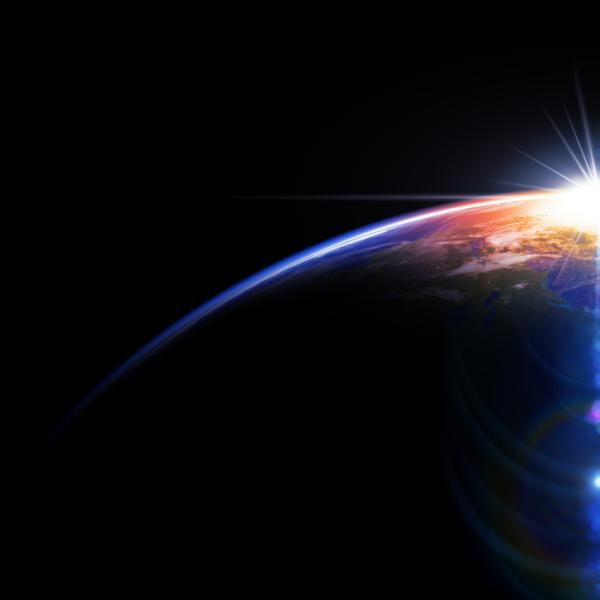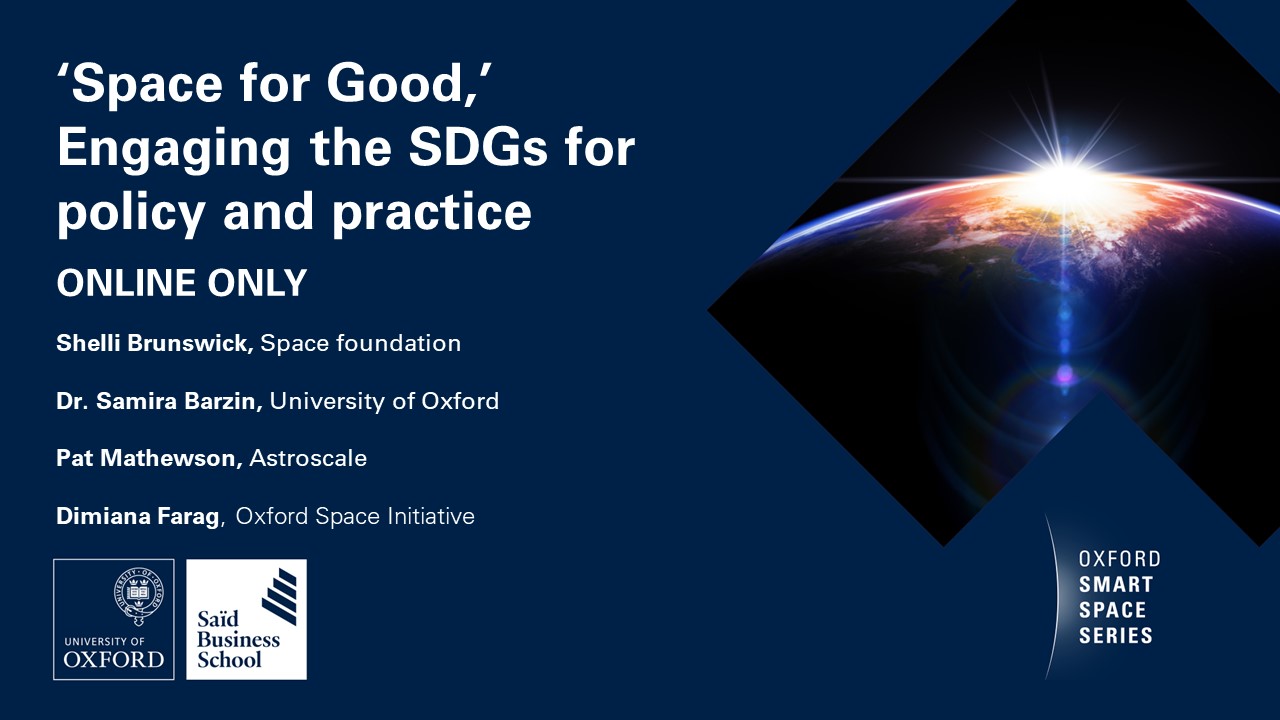About the event
Opportunities, challenges, and risks as we use space technology in sustainable development.
Many of the entrepreneurial companies proliferating in the newly commercialising space sector emphasise their determination to use ‘space for good’, arguing that satellite technology provides valuable tools, data and insights to enhance our understanding of earth and its ecosystems, and thus advance sustainable development.
How do these aspirations contribute to achieving the United Nations’ Sustainable Development Goals (SDGs)? What are the challenges and risks involved? And how can commercial companies build on existing government-led space programmes to advance their sustainable aims?
This episode from Oxford Saïd’s Smart Space series brings together Shelli Brunswick, Space Foundation, Dr Samira Barzin, University of Oxford, and Pat Mathewson, Astroscale, in a discussion hosted by Dimiana Farag from the Oxford Space Initiative.
While the programme discusses many positive ways in which space companies can contribute to achieving the SDGs ‒ and not just in the area of the environment ‒ the fast development of the sector also raises a number of complex issues, including:
The need for an intermediary ‘layer’ of organisations to apply insights. There is a huge quantity of data being produced by commercial and government satellite systems, but provision of data alone will not achieve anything.
A nuanced approach to interpreting data within its socioeconomic context. Remote sensing could be used to crack down on illegal fishing, for example: but if that ‘illegal’ fishing is being done by a smallholder or subsistence farmer, then ‘that’s someone’s income we’re attacking’.
The continuing challenge of space debris. This has been mentioned in numerous Smart Space broadcasts, but remains a problem. ‘We have to pay attention to our orbits and make sure that we design spacecraft and design policy that leads to sustainable space environment over time.’

